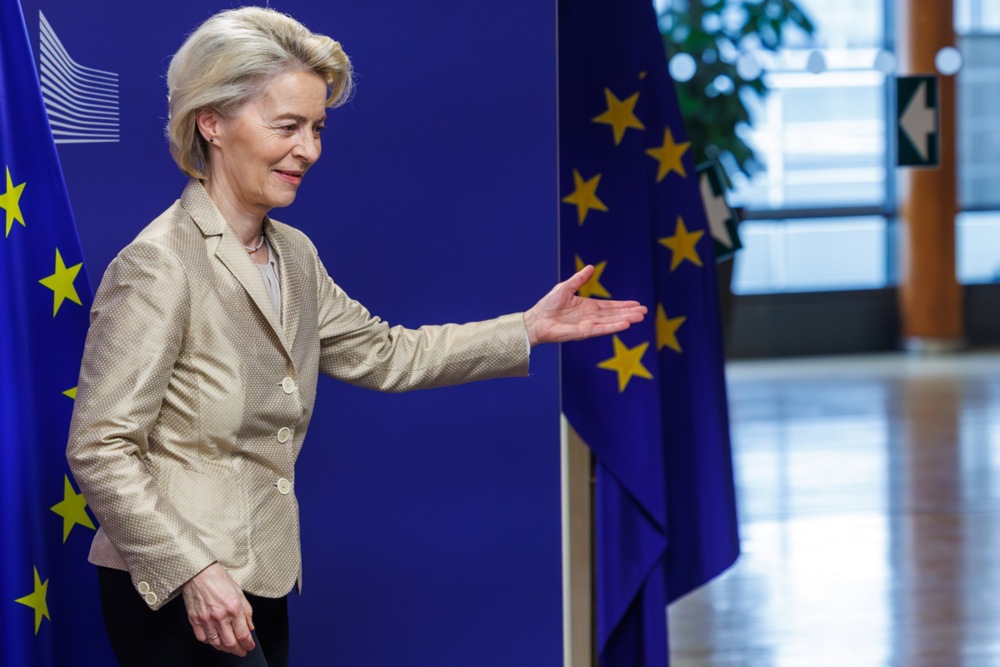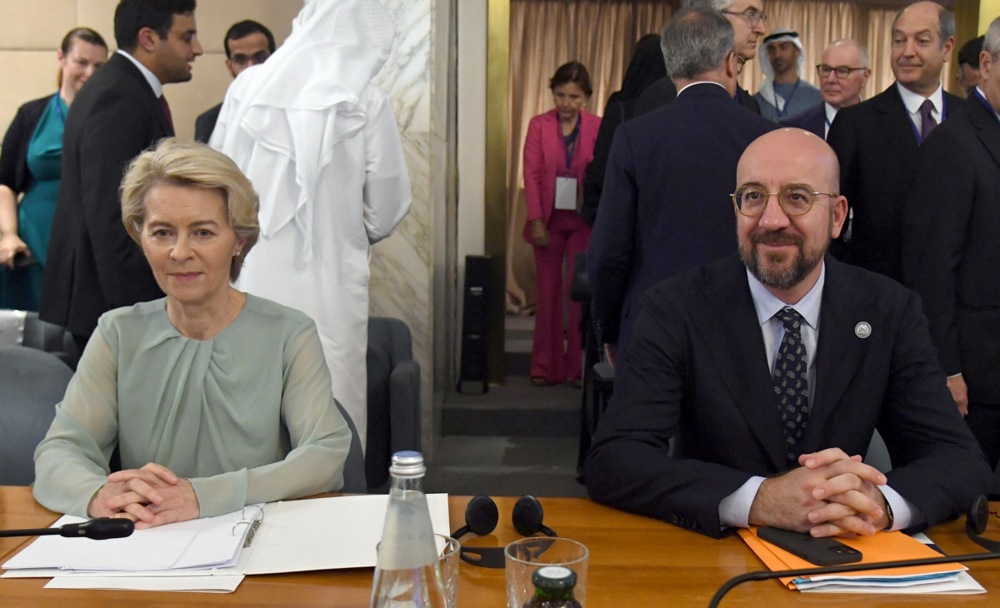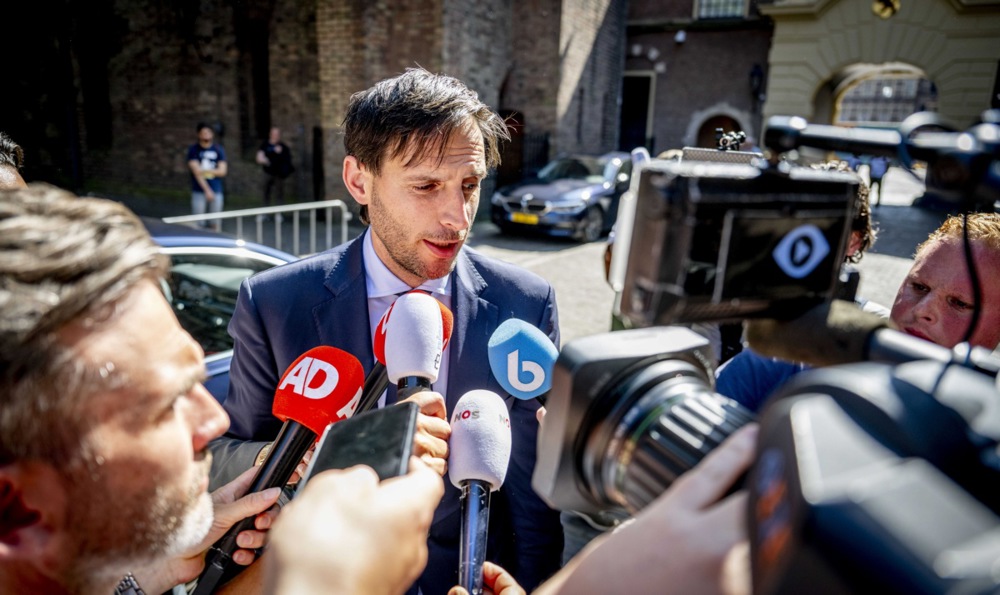Pressure is growing on European Commission President Ursula von der Leyen, with an increasing number of former backers willing to express dissatisfaction with her work over the past five years.
Allies who voted for her in her razor-thin win as EC chief in 2019 are now saying they would prefer a different candidate, and her own European People’s Party (EPP) is rumoured to be working on “back-up” plans ahead of the European Parliament elections in June.
The EPP is reportedly mulling replacing von der Leyen following the elections, according to rumours circulating in her homeland.
Germany’s Bild newspaper has reported that the group is considering alternatives amid growing negative sentiment, making her re-appointment more unlikely.
According to Bild, the shift in mood was triggered by a minor scandal involving fellow German Christian Democrat Markus Pieper, whom von der Leyen wanted to appoint to a senior envoy role within the EC.
That sparked accusations of favouritism, with Pieper eventually opting to decline the role.
This appears to have been the straw that broke the camel’s back for some within the EPP, who are now said to be pushing for the group to pick a more popular candidate for EC top job.
One anonymous German Christian Democratic Union (CDU) MP told Bild that the tables have been turned on von der Leyen, adding that her chances of re-election were now “shitty”.
Likely replacements for the role are, according to an EU insider, Greek Prime Minister Kyriakos Mitsotakis or Croatian Prime Minister Andrej Plenković.
Both of these centre-right EPP politicians are said to be interested in the job and are popular with the party after having won elections in their homelands.
Bild also noted that, despite von der Leyen being Germany’s most powerful woman in Brussels, her own party in the country has so far failed to reference her in campaign posters, instead opting to use billboards with faceless slogans alongside the party’s logo.
The CDU’s General Secretary Carsten Linnemann told German media the group only planned to run advertising campaigns featuring its leadership personnel in the final two weeks leading up to the vote.
Until then, it will use slogans such as: “Security needs your voice” and “In freedom, in security, in Europe”.
According to Bild, the decision not to show candidates’ faces is a concern among party strategists and highlights differences between von der Leyen and her own party, differences which could be exploited by political opponents in Germany.
In Europa zu leben bedeutet, in #Freiheit zu leben. Und diese Freiheit ist unser großes Glück.
Wir können unsere Talente frei entfalten, können uns frei bewegen und arbeiten, wo wir wollen. Wir können unsere Regierungen wählen und abwählen und frei unsere Meinung äußern. pic.twitter.com/TQpuDQvGvB
— CDU Deutschlands (@CDU) April 19, 2024
MEPs have also talked to Brussels Signal regarding discontent with von der Leyen’s policies.
German liberal MEP Moritz Körner said during one interview he would not vote for her again, and that he “regretted” doing so last time round.
French MEP Nicolas Bay, of the European Conservatives and Reformists (ECR) group, said in his studio interview he “would do anything to prevent her have a second term”.
Bay said he thought “very badly of Mrs von der Leyen … politically”.
“She is a bit like the grave-digger of Europe [because] she weakens Europe and the European nations.”
His Dutch colleague, Rob Roos, Vice President of the ECR, pointed out that von der Leyen was already being investigated in Germany before she moved to the EC role in 2019.
He noted she gained crucial votes from his Polish [ECR] colleagues in her narrow majority, “something they now regret“.
“She promised them everything, but of course that was false,” he said.
Still, the major issue Roos said he had with von der Leyen was that “she is not transparent”, in particular regarding “Pfizergate” and her text messages with Bourla, the CEO of Pfizer.
“It was a €40 billion contract and she was interfering with the negotiations,” he claimed. “It’s about taxpayer money that was spent … and we should have a clear view on how this money was spent.”
Roos pointed to the European Ombudsman and Court of Auditors, which he said have serious questions about how von der Leyen handled the situation. “If you are not transparent, you don’t deserve a second term,” he added.
Juan Fernando López Aguilar, of the European Socialists (S&D Group), was more positive about von der Leyen’s track record was but he said he nevertheless preferred Frans Timmermans last time around and would now support Nicolas Schmit, the S&D’s Spitzenkandidat or lead candidate.
López Aguilar did add, though, that his group might end up giving von der Leyen its support in compromise talks. “I would say that this mandate has been particularly fruitful, with many accomplishments,” he added.
Aguilar said he disliked von der Leyen’s recent leaning towards the Right, particularly regarding Tunisia and the perceived lack of support for Palestinian civilians, with her showing “not a word of compassion to the killed civilians”.
“She has made mistakes, but the point is we’ll have to combine forces to build a Commission,” López Aguilar concluded.
In Europa zu leben bedeutet, in #Freiheit zu leben. Und diese Freiheit ist unser großes Glück.
Wir können unsere Talente frei entfalten, können uns frei bewegen und arbeiten, wo wir wollen. Wir können unsere Regierungen wählen und abwählen und frei unsere Meinung äußern. pic.twitter.com/TQpuDQvGvB
— CDU Deutschlands (@CDU) April 19, 2024
In Brussels, von der Leyen was chastised when she tried to appoint Pieper for what was a €20,000 per-month job. Many pointed to better-qualified competition and Pieper withdrew his candidacy.
The botched attempt to parachute an ally into such a key position led to the European Socialists criticising von der Leyen, saying “she went too far” and put the EC in an “unbearable situation”.
Just prior to that, EU Ombudsman Emily O’Reilly had said there were “some causes for concern”, pointing towards a “drift toward overt politicisation [that] might extend deeper into the workings of the system”.
Von der Leyen had already been haunted by two long-running scandals, namely Qatargate and the contentious deal she made with US pharmaceutical giant Pfizer.
The accusations come amid a rising chorus of questions about whether the German will gather the required backing for her bid for a second term as EC head.
Her previous election win was narrow, with just 383 votes in favour out of 733 votes cast. Many believe she only garnered that victory by “leaning” on the Greens and Socialists.
Now, at the end of her first term, she has had to abandon core elements of the Green Deal, water down the Nature Restoration Law and make numerous concessions to angry farmers.
On top of this, von der Leyen also signed up for tougher immigration laws and supported, by way of example, Italian Prime Minister Giorgia Meloni in her dealings with third countries to stop migration towards Italy.
Progressive parties have become disappointed in her stance on the conflict in Israel, as indicated by López Aguilar.
That comes alongside the release of European funds for Hungary, which led to the European Parliament suing the EC.
Liberals are not happy either. In early March, the Liberal German finance minister Christian Lindner blamed von der Leyen for Europe’s worsening economic performance.
“It is Ursula von der Leyen’s legacy that we have chosen regulation instead of innovation,” he said.
Other key allies for von der Leyen, such as Socialist German Chancellor Olaf Scholz and French President Emmanuel Macron, are both struggling in the polls and seem to be losing ground to right-wing nationalist Eurosceptic parties.
The European Public Prosecutor’s Office has found numerous cases of alleged misuse of European Union Covid pandemic recovery funds – worth billions of euros. https://t.co/IV458GH6ga
— Brussels Signal (@brusselssignal) April 12, 2024





